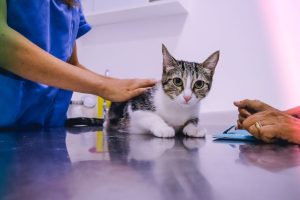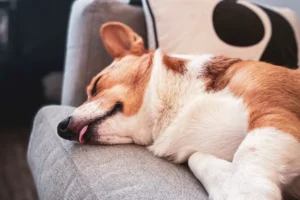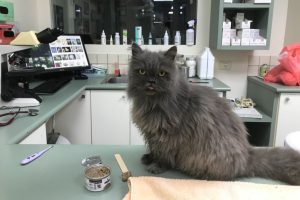Have you noticed your feline friend catching more Z’s than usual after their recent vaccinations? It’s natural to be concerned about changes in your cat’s behavior, so let’s explore why this might be happening.
If your cat is sleeping more than usual after vaccinations, it may be due to the body’s immune response working overtime to build antibodies. This can leave your furry companion feeling a bit more lethargic than usual as their system works to protect them.
Understanding Vaccination Side Effects
After getting vaccinations, it’s normal for your furry friend to feel a bit under the weather. Lethargy and increased sleepiness are common side effects that can occur in cats after vaccinations. Just like how we might feel a little tired or run down after a vaccine, our feline companions can experience similar symptoms.
It’s essential to keep an eye on your cat’s behavior after vaccinations. If you notice your cat sleeping more than usual, it’s likely their body’s way of fighting off the vaccine’s effects and building up immunity. Rest is crucial during this time, so don’t worry too much if your cat seems to be taking extra-long naps.
Remember that every cat is different, and while some may bounce back quickly, others might need more time to recuperate. Observant behaviors such as sleeping more, lacking energy, or being less playful are all indications that your cat might be feeling a bit off after their shots.
For more information on common side effects of vaccinations in cats, you can check out this helpful resource from the American Association of Feline Practitioners: Vaccination Side Effects in Cats
Importance of Rest for Recovery
When it comes to recovery after vaccinations, rest is crucial for your cat’s well-being. Just like how we need to rest and allow our bodies to heal after getting a vaccine, our feline friends also benefit from sleep and relaxation.
Allowing your cat to rest after vaccinations can help their body recover and build up immunity more effectively. Encourage your cat to find a comfortable spot to rest and sleep undisturbed so that they can fully recover from the stress of getting vaccinated.
Remember, patience is key during this time. Your cat may need a few days of extra sleep and rest to feel back to their normal self. Keep an eye on their behavior and make sure they have a cozy spot to relax in while they recuperate from their vaccinations.
Monitoring Your Cat’s Behavior
After your cat receives vaccinations, it’s common for them to feel a bit under the weather. You might notice that your furry friend is sleeping more than usual. This is a natural response as their body works to build immunity against the vaccines. Keep an eye on your cat’s behavior during this time to ensure they’re on the road to recovery.
Signs of Concern: While some extra naps are expected, monitor for any concerning symptoms such as lethargy, lack of appetite, or unusual behavior. If you notice these signs or if your cat’s sleepiness persists for an extended period, it’s crucial to reach out to your veterinarian for guidance.
Providing Comfort and Support
Your sleepy kitty might need some extra TLC after their vaccinations. Create a cozy environment to help them feel safe and comfortable during this time. Here are some tips to provide support:
- Quiet Space: Set up a quiet area where your cat can relax without disturbances. A soft bed or blanket can offer additional comfort.
- Warmth: Ensure the room is warm and cozy, especially if your cat is feeling a bit under the weather.
- Cuddles: Some gentle snuggles and pets can reassure your cat and make them feel loved during this sleepy period.
- Fresh Water: Keep fresh water accessible to help your cat stay hydrated while they rest.
- Playtime: Once your cat starts to perk up, engaging in gentle play can help boost their mood and energy levels.
For more information on cat care after vaccinations, you can refer to this Cat Vaccinations: What to Expect After Your Cat’s Shots from PetMD. It’s always good to stay informed and prepared to ensure your furry friend’s well-being.
Returning to Normal
After vaccinations, it’s normal for your cat to sleep more than usual for a day or two. The body’s immune response can make them feel a little under the weather. However, you can expect your furry friend to bounce back to their usual energetic self within 24 to 48 hours. If your cat continues to be lethargic for an extended period, consult your veterinarian to rule out any underlying issues. Keep an eye on them during this recovery period, offering extra love and comfort to help them feel better sooner.
Consulting Your Veterinarian
If you notice your cat sleeping more than usual after vaccinations and are concerned about their behavior, don’t hesitate to reach out to your veterinarian. Your vet knows your cat’s medical history and can provide personalized advice based on their specific needs. It’s crucial to communicate any changes you observe in your cat’s behavior to your vet to ensure their well-being. Remember, your veterinarian is there to assist you in caring for your feline companion and address any concerns you may have promptly.
Additional Insight:
– Your veterinarian may recommend certain post-vaccination care tips to help your cat recover comfortably, such as providing a cozy, quiet space for them to rest and offering extra water to stay hydrated. Always follow your vet’s instructions for the best recovery process.
Remember, your cat’s well-being is a top priority, and staying proactive about their health is essential. Consult your veterinarian if you have any worries or questions about your cat’s post-vaccination behavior.
Trivia: Fun Facts About Cat Vaccinations
Did you know that the first successful vaccination was developed by Edward Jenner in 1796 for smallpox? Thanks to his groundbreaking work, vaccines have come a long way, even for our furry friends. When it comes to cat vaccinations, here are some fun facts to keep in mind:
Vaccine Types: Cats receive core vaccines that are essential for their health, such as those for rabies and feline distemper. Non-core vaccines are optional and depend on your cat’s lifestyle and risk factors.
Booster Shots: After the initial vaccinations, booster shots are crucial to maintain your cat’s immunity. These boosters help ensure long-lasting protection against various diseases.
Side Effects: It’s normal for cats to experience mild side effects after vaccinations, such as fatigue or decreased appetite. If your feline friend is sleeping more than usual post-vaccination, don’t worry too much; it’s likely their body’s way of responding to the vaccine.
Yearly Check-ups: Regular vet visits are essential for monitoring your cat’s health and ensuring they stay up-to-date on vaccinations. These visits also allow your vet to catch any potential issues early on.
Lifetime Immunity: Some vaccines can provide lifetime immunity for certain diseases in cats. However, regular vet check-ups are still necessary to ensure your cat’s overall well-being.
Remember, vaccines play a crucial role in keeping our furry companions healthy and protected from harmful diseases. Stay informed and consult your vet for the best vaccination plan tailored to your cat’s needs.
Conclusion
For more in-depth information on cat vaccinations and post-vaccine care, check out the American Association of Feline Practitioners (AAFP) website. They provide valuable resources and guidelines on feline vaccinations, helping you make informed decisions about your cat’s healthcare. Remember, your vet is your best partner in ensuring your cat’s well-being, so don’t hesitate to reach out for any questions or concerns you may have. Keeping your cat healthy and happy is a team effort between you, your vet, and your furry friend!
Alex, a passionate animal lover, has experience in training and understanding animal behavior. As a proud pet parent to two dogs and three cats, he founded AnimalReport.net to share insights from animal experts and expand his knowledge of the animal kingdom.




